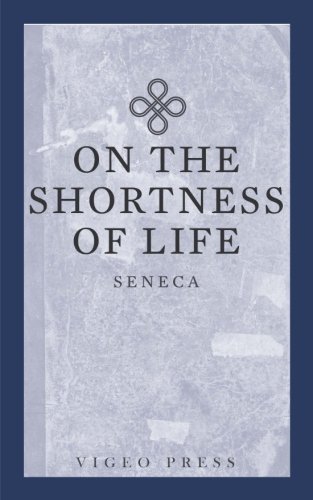
On the Shortness of Life
Life, as it turns out, isn’t actually short—it’s just that most of us waste it. That’s the central argument of On the Shortness of Life by Seneca, a work that has remained startlingly relevant despite being written nearly 2,000 years ago. While the ancient Roman philosopher was addressing the concerns of his time—politicians chasing power, merchants obsessed with wealth, scholars lost in trivial studies—his words feel just as applicable in an age of social media, endless notifications, and the modern obsession with productivity. Seneca’s message is simple: we have more than enough time to live a meaningful life, but we squander it on distractions, meaningless pursuits, and worrying about things that don’t matter.
Unlike many modern self-help books that focus on “time management,” Seneca isn’t concerned with squeezing more hours into the day. His argument isn’t that we need to be more efficient—it’s that we need to be more intentional. He criticizes people who spend their lives chasing wealth, fame, or leisure without ever stopping to consider what truly matters. His famous warning that “it is not that we have a short time to live, but that we waste much of it” cuts through the excuses we use to justify our lack of fulfillment. We complain about not having enough time, yet we spend hours on trivial distractions, indulging in gossip, worrying about status, or numbing ourselves with entertainment. Sound familiar? Swap out the Roman baths and political scheming for Instagram feeds and Netflix binges, and suddenly, Seneca could be writing about modern life.
What makes On the Shortness of Life so powerful is that it’s not just a critique of wasted time—it’s a call to action. Seneca urges us to take ownership of our lives, to stop living as if we have unlimited time ahead of us. He warns against the trap of “living for the future,” something that resonates strongly with modern readers. How many people tell themselves they’ll be happy after they get the promotion, after they buy the house, after they retire? Seneca sees this as one of the greatest delusions—people plan for a future they might never even reach while neglecting the present, the only time they actually own. His solution is simple but profound: live fully now. Engage deeply in what truly matters, cut out meaningless pursuits, and treat every day as valuable rather than assuming you’ll always have more time.
When comparing Seneca’s advice to modern Stoic practices, there’s a striking overlap. Today’s Stoic thinkers—whether it’s Ryan Holiday’s The Daily Stoic or William B. Irvine’s A Guide to the Good Life—echo many of the same themes. Both ancient and modern Stoicism emphasize the importance of focusing on what we can control, avoiding distractions, and valuing time as our most precious resource. However, while modern Stoic methods often include structured routines, journaling, and practical exercises to cultivate mindfulness, Seneca’s approach is more direct: stop wasting time, recognize your mortality, and live with purpose.
One of the biggest differences between ancient and modern Stoicism is the way we approach productivity. In today’s world, self-improvement is often tied to efficiency—how can I get more done in less time? How can I maximize my schedule? Seneca would likely argue that this mindset still misses the point. It doesn’t matter how much you accomplish if what you’re accomplishing isn’t meaningful. Modern Stoicism often incorporates methods like digital detoxing, setting daily priorities, and practicing gratitude—things that align with Seneca’s philosophy but are packaged in a more structured way. The key takeaway from both approaches is the same: be intentional about how you live, because time is the one thing you can never get back.
Perhaps the most chilling reminder in On the Shortness of Life is Seneca’s observation that most people don’t even realize they’re wasting their lives until it’s too late. He warns that many people only understand the value of time when they’re near death, looking back with regret at how much of their existence was spent on things that didn’t matter. This is where his writing transcends philosophy and becomes something of a wake-up call. His words force the reader to ask uncomfortable but necessary questions: If I were to die tomorrow, would I be satisfied with how I’ve spent my time? Am I prioritizing things that truly bring meaning, or am I letting life slip by in trivial pursuits?
In a world that constantly demands our attention, where distractions are engineered to be irresistible and busyness is worn like a badge of honor, Seneca’s wisdom is more important than ever. Modern Stoic practices may provide tools to help us implement his advice, but the fundamental lesson remains unchanged: life is only “short” if you fail to use it well. The challenge isn’t to find more time—it’s to stop giving it away to things that don’t matter.